Would you work on an oil rig for two years so you could save money to fund your seemingly impossible dream of becoming a Formula One racing driver?
Not many people possess that kind of ‘whatever it takes’ determination, but that’s exactly what Top Gear’s Original Stig and ex Formula One driver Perry McCarthy did: “I’m somebody who goes for things. If I think it’s a good idea and there are barriers in front of making the idea happen, the next job is to remove those barriers.
“My approach to pretty much everything – whether in racing or with business ideas – is to either smash through the barriers, dig under them, go over them, go around them, or whatever it is, find a way through the barrier.”
And smash barriers he did.
“Because much of racing is a financially dependent sport, performance is often limited or enhanced by exactly what kind of budget you've got. Every time these wheels go round for a junior formula or a top formula, it's an awful lot of money and money needs to be found sometimes, and I'm certainly not unique here.
“As a young driver I had no track record to even get sponsorship. I got a job working on North Sea oil rigs for two years, which paid me a lot of money. That was two years of working 12-14 hours a day, every week, and then a week off, to get the money together to even start motor racing.
“After all that time the amount of money I had to start, by motor racing standards, was small. I had to maximise it immediately.”
Perry was up against better funded racers who had been driving since they were about 10, and he had to make his mark and get noticed from the get-go so he could attract sponsors before his hard-earned savings ran out.
“When I first came into motor racing, I was very, very fast, but wild. It's important not to dull that fire, but it’s important to temper it to use it as a weapon and become more effective.
“There were a lot of things I was learning on track because I started incredibly late against many guys who have been racing for many years. But I had to make a decision. I couldn't use that as an excuse, because if I started racing at the age of 21, and I turned up with the attitude that ‘I don’t stand a chance because these guys have been racing cars since they were 10’, I’m finished already.
“My job was to turn up and beat them. That’s all there was to it. There was no learning year.
“I was able to do that. And I started winning consistently and then won the British Championship.
His unrivalled will to win took him from unknown underdog to one of the best-known names in motorsports: he drove for the Andrea Moda team in Formula One in 1992 – though never making it into a race – before moving into sports cars, including driving in the 24 Hours of Le Mans five times from 1996 and 2003. McCarthy also portrayed The Stig in the first two series of BBC’s motoring show Top Gear.
Whether Perry won or lost a race, he showed up with attitude – and it made waves – both on and off the race course.
“I did become well known very quickly in motor racing for my driving, but also for my attitude; ‘don’t stand in my way. I am going through anything and everything.’ Even in Formula One teams, when I was very young, people started knowing about this guy who was coming through and who would not stop.”
In this Christmas special edition you’ll learn how to apply the mindset of a champion to your climatetech business through Perry’s own story of success, failure, back-breaking accidents, and show-stopping wins.
What made you say, ‘I’m not just going to think about this very competitive and adventurous career, but I’m going to go for it?’
There are certain things that attract me and it's not the normal path because I often find things a little bit dull.
If I find the idea of something exciting, then it has my 100% focus. I don’t mean to sound bigheaded, but I know that I’ve got a number of attributes, and focus and determination are very high on that list.
I could have have an easier life if I’d set my sights a little bit lower, but that’s of no interest to me, so I’d rather endure the struggles.
What I’d say to anybody who is starting a business with any particular vision is that that's fantastic, and if they are equally determined and focused that is going to be needed. But the number one thing they will need to understand and be able to live with are huge disappointments.
Those who have a dream…you see this pool of contestants of those who have some ability and then those who have real ability but that pool dwindles because sometimes people cannot continue the path of suffering continued disappointment. It does make me smile sometimes when you see The X Factor, and a 19-year-old says; ‘Simon, this is my last chance.’ If you're 19 and you think that, you’re never going to succeed because it's a question of work, application and finding a way through those barriers.
You had a terrible accident early in your racing career, what made you decide to get back in the game?
I had a very, very bad accident which put me out for nearly a year after breaking my back. Then I was back into career asking ‘do I still want to do this, is my mind ok?’ I had to repair the body, I had to find some financing to actually even get back in. So it's challenges, challenges, challenges. The only thing that you do have to make sure is, when fighting all the time like this, you’ve got to make sure that there is a reward built in, and actually this is something you do want to do.
And it’s not just the scale tipping in favour – it’s ‘I'm obsessed with doing this and I absolutely believe that I can get to the top’ – then that was worth it.
Did you actively build a support group, or did it happen naturally?
There wasn't a great deal of sophistication about my approach years ago. It was walked around an industrial state, knock on doors, chat up the receptionist to try and get a meeting with a director. Sit in front of them. Tell them exactly how great motor racing is and where I'm going and just keep talking, engaging people, and just see what can be done. I was just knocking on doors, trying to get people to think ‘hey, this guy is really hungry. We like the idea of him going road racing, here’s a few 100 pounds or a few 1000 pounds.’
It was that imagination and determination, and a lot of people say ‘I can't get sponsorship.’ Did they walk around industry states knocking on doors? Did they send letters all the time? Did they make phone calls all the time? It's no stone unturned and this is what is needed and there was only one person who's gonna make that happen.
It wasn’t just ‘take the money and say thank you very much.’ See, they didn't have to do this really, they've done it for me and now I want to find ways to pay them back. I want to make sure that they’re happy. And sometimes the following year, they couldn’t do it because business was suffering, but I always made sure that nobody once had a bad taste in the mouth after dealing with me.
Was there a race or experience on the track that stood out to you?
I always got a real kick out of setting pole position and being the fastest of the fastest in qualifying. That meant a lot to me. My time in America was very good for that because I turned up to the States with a very small team with a small car against multi multi multi million dollar manufacturers and started tearing them apart. That was noticed big time. There was one particular race where I was in the level just below Formula One. And the only way I could get out there was to jump in a car that was being run from a friend's garden. No workshops, people, or team. We’d turn up with just this car with no testing, taking on some of the biggest stars that went on to be Grand Prix winners.
When you’re fighting for pole position in that, and when you’re fighting for fifth or sixth place in that, that's when people go ‘wow!’ My philosophy is – and it applies to so many walks of life – because so often I've been in a situation where it was impossible to win because of no testing, because of the car, because of no budget. It’s impossible to stand on the top step of the podium.
But you can win. You can win by coming 6th, you can win by coming 10th, you can win by coming 14th. Because if nobody else has been able to qualify that car for that kind of that race, what you’ve shown is you’re the one who’s qualified that car. You’re the one who’s fighting midfield.
If you never give up, and if you show that attitude and you’re dancing on the minute at every single corner, it gets noticed. You haven’t taken the silverware home, but you’ve won reputationally.
People go: ‘did you just see what he just did with that piece of rubbish?’
Perry’s top tips for Green Techpreneurs
Work on getting noticed
There are actually two careers: there's the career that you want to pursue. If it's business, you have to focus, you have to look at any gaps and try to fill those gaps and perform better and produce a better result. But the parallel career is that you have to be noticed.
The parallel career means that you have to get people to see what you're doing to be noticed, so that some of those barriers are removed by other people believing in you and giving you the chances you've been working for. It's no good being the best artist in the world locked up in a studio producing incredible work if you haven't organised an opportunity for it to be seen and desired.
Do you need to adjust what you’re doing, or work harder on getting noticed?
Even in dire moments, so much is what’s actually between the ears. You’ve got to keep thinking; ‘does this fundamental philosophy need adjusting? Or is it just that it needs to get noticed?’ Sometimes you have to tweak it. In any path or idea, if you could go from A to B – that would be ideal. From what I've experienced, it's more like a downhill skiing slalom race, where you have to zig zag and go sideways and then hopefully make some progress. Keep thinking, keep looking, keep developing, because if you don't, you might as well throw in the towel.
……………………With Christmas just around the corner, do you have any Christmas rituals or traditions that you practice? “I love Christmas and I love seeing friends and family.
“We’re very fortunate. A very good friend of mine is one of the most famous turkey farmers in the country – Paul Kelly. Paul and I have been friends since we were teenagers. The tradition is that every year, we get a fabulous turkey from Paul.”
Book Recommendation
Need a jaw-dropping and inspirational holiday read?
You can buy the newly released audio to Perry’s international bestseller, Flat Out Flat Broke here.
Or get a Christmas discount on the hardcover out now!
Make a Connection
Whether you’d like to find a mentor, an employee, a job, a business partnership, or just meet someone new over a virtual coffee who’s just as passionate about building greentech businesses – hit the button below and I’ll post a shout out for you in the next newsletter.

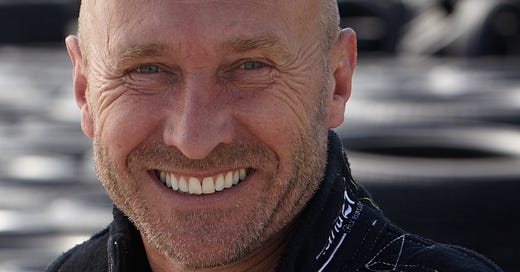




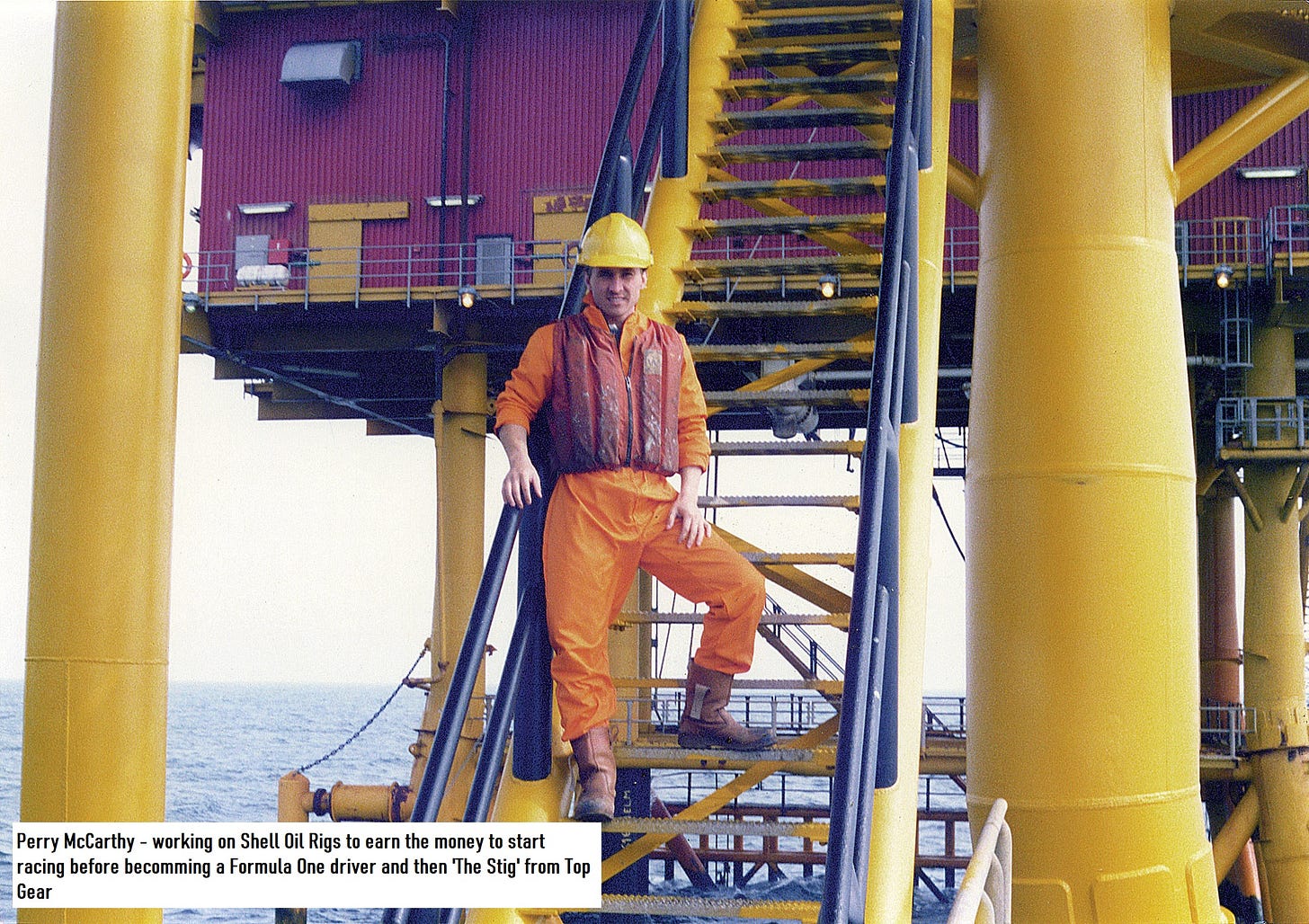
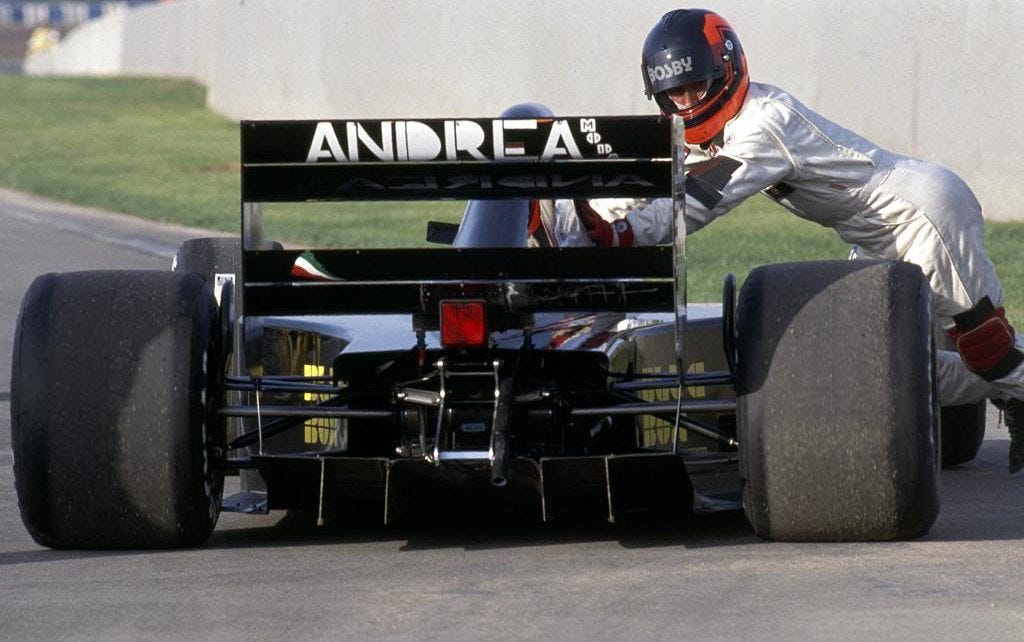
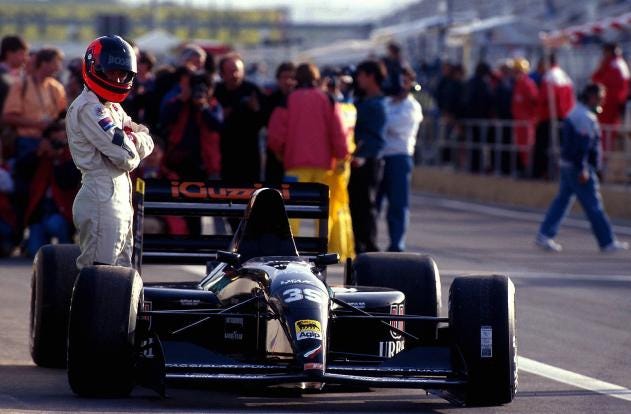
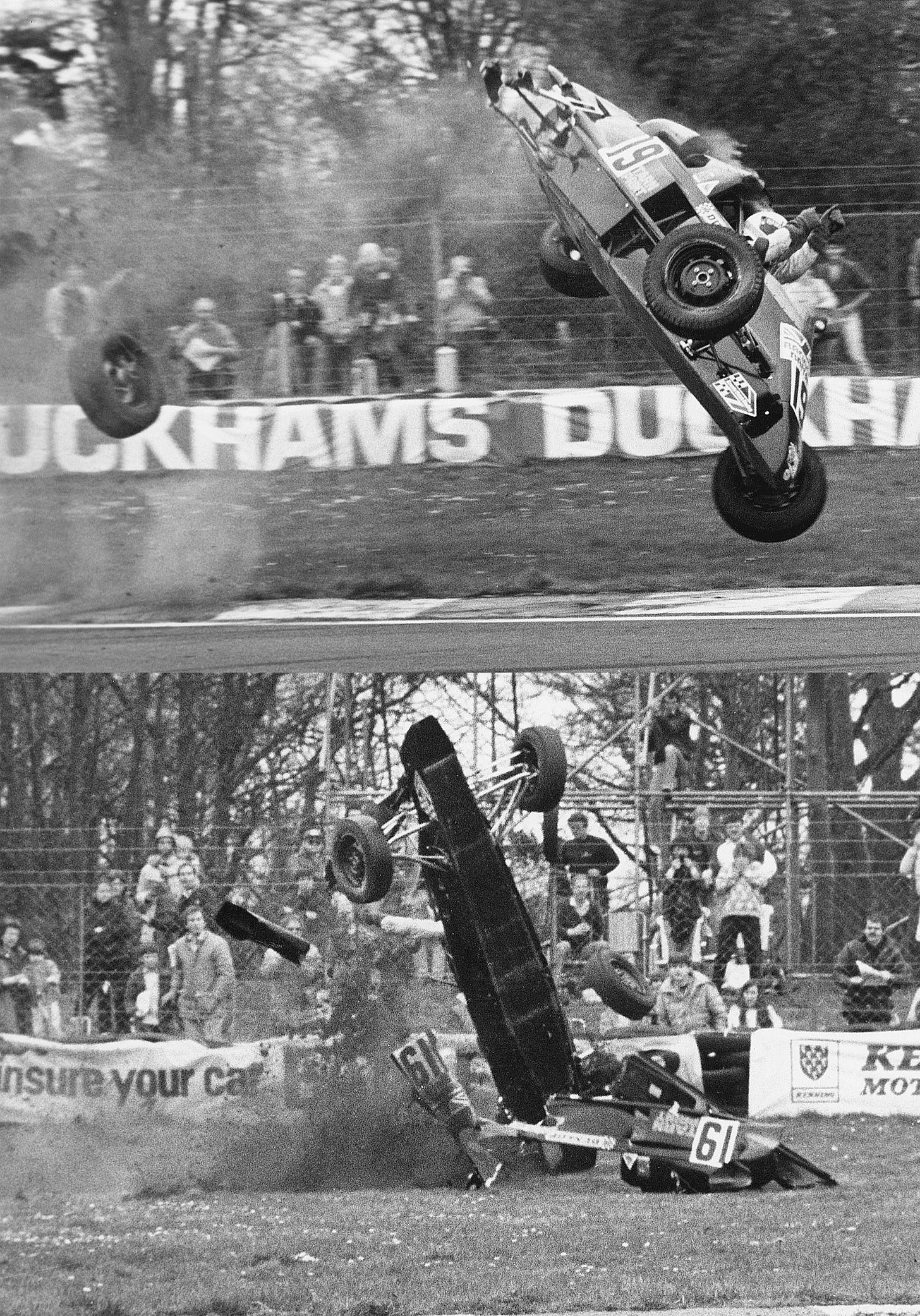
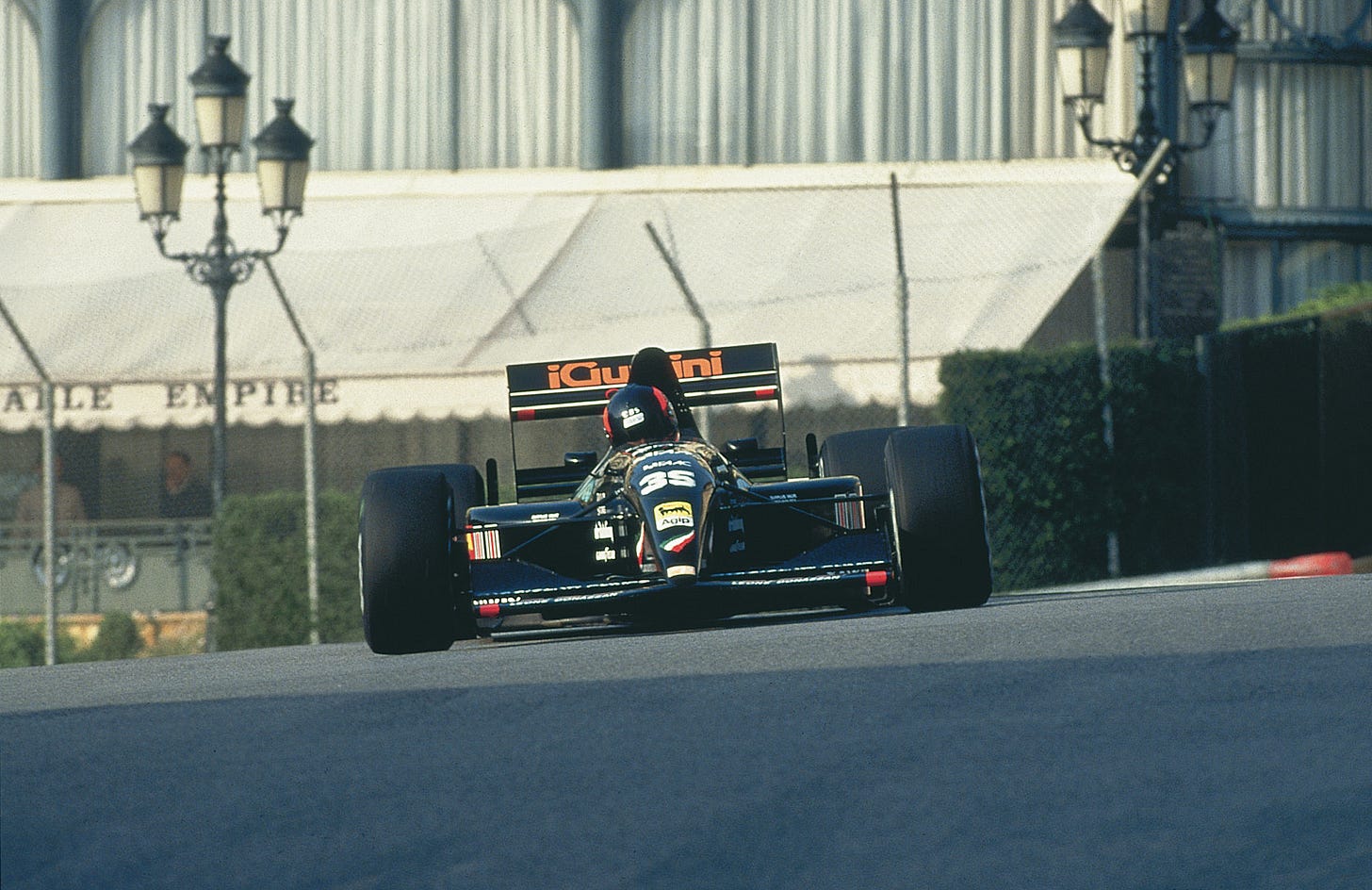
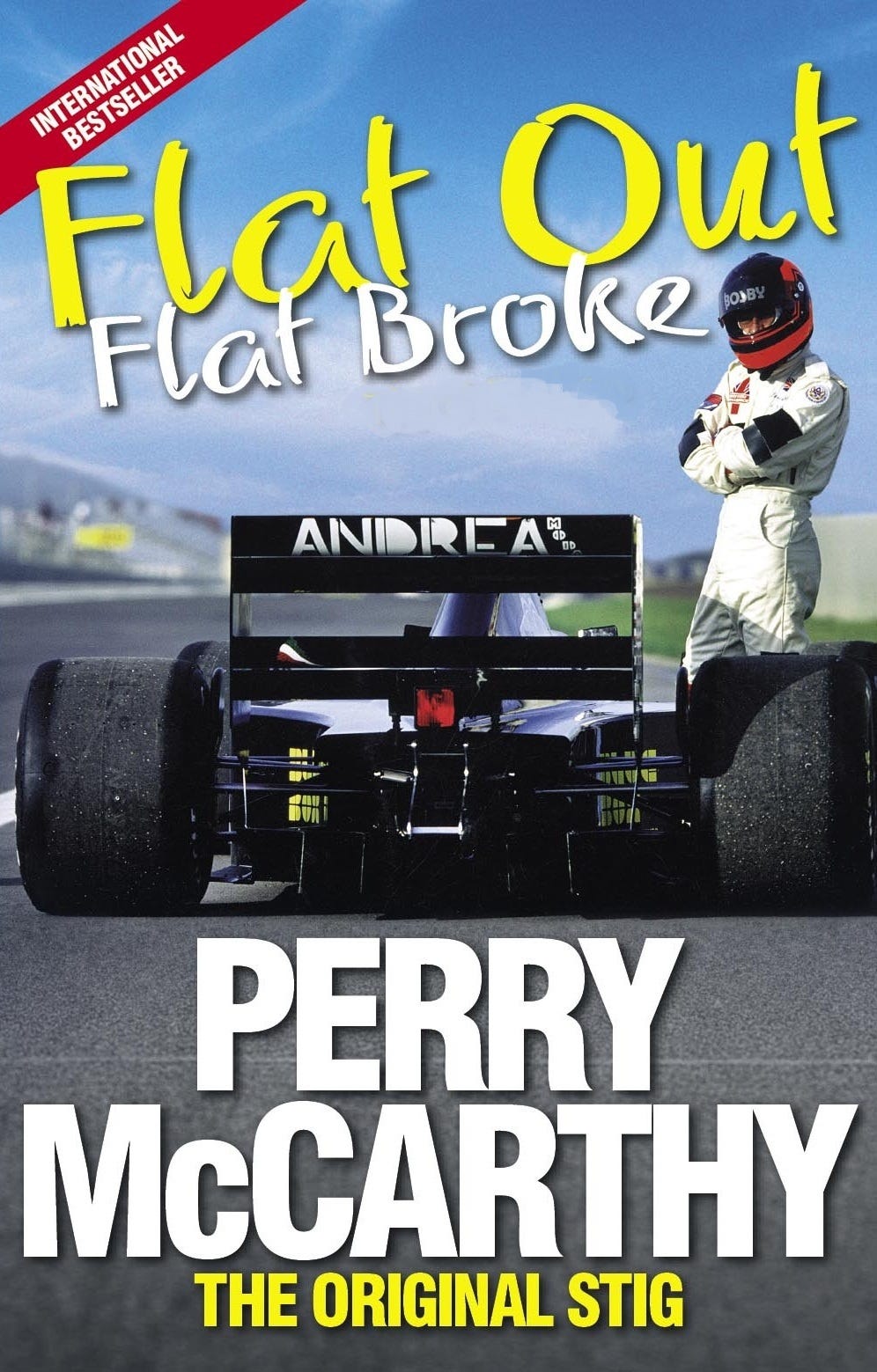


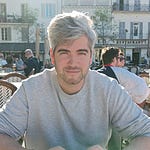

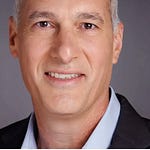




Share this post